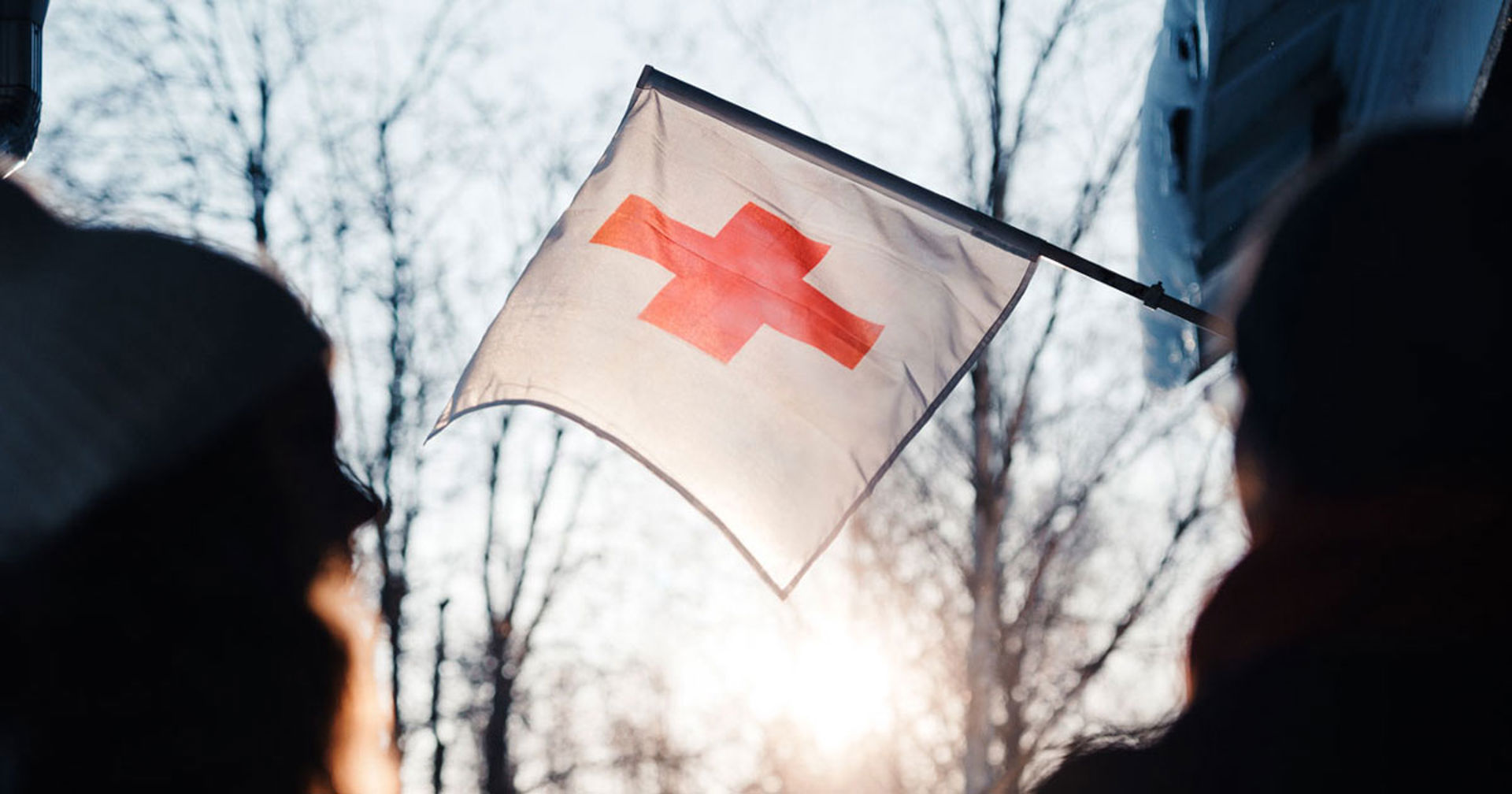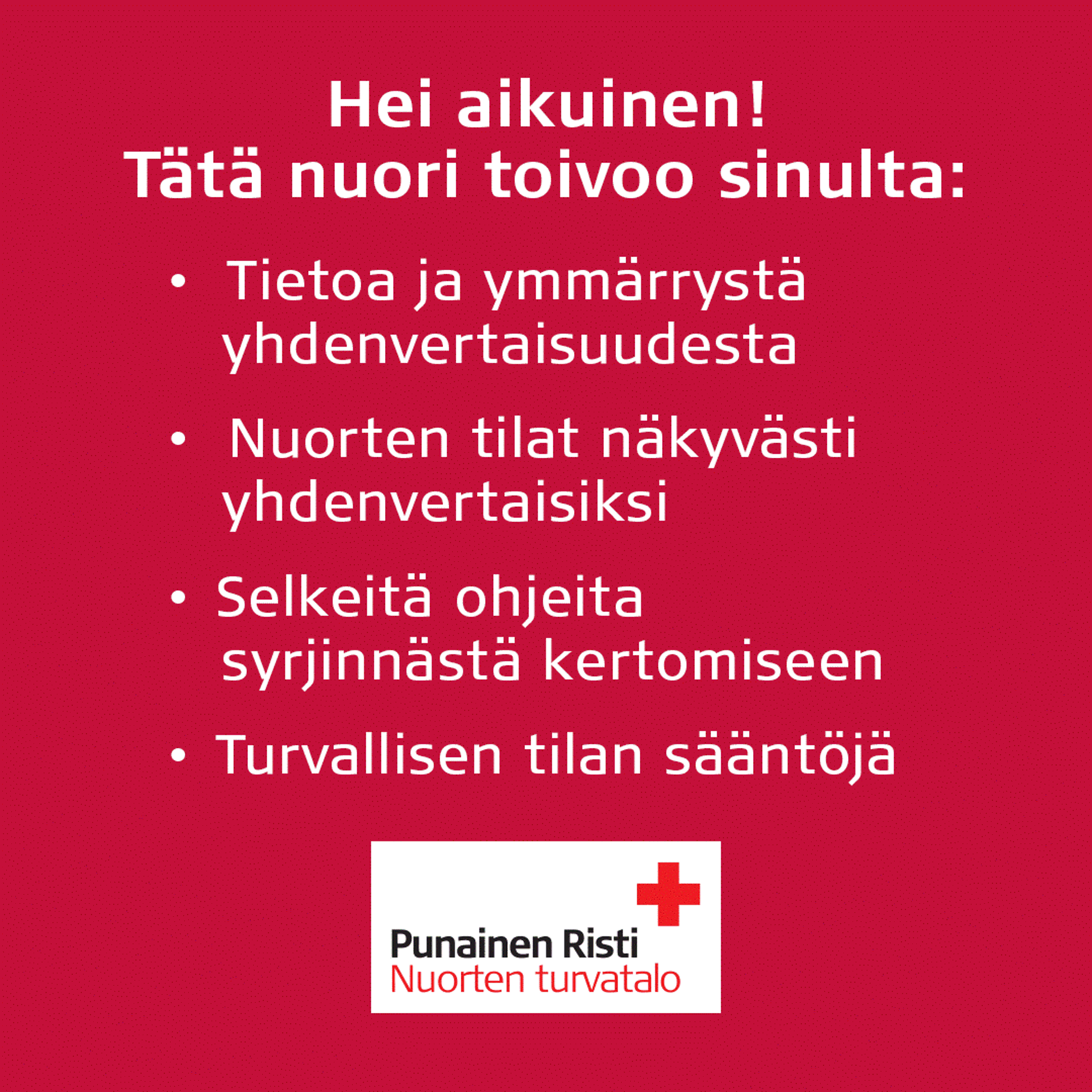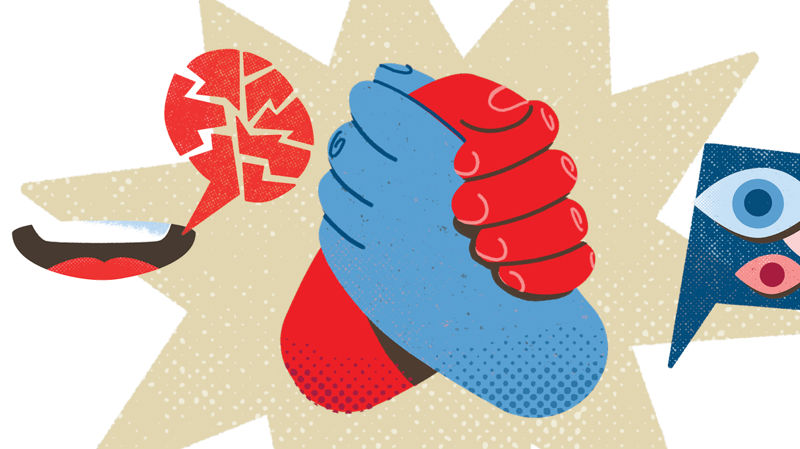“I feel the answer here is to throw prejudices into the bin”

The Digiraati discussions organised by the Finnish Red Cross Youth Shelters reveal that young people encounter racism in their everyday surroundings.
The harassment, discrimination and racism experienced by young people does not take place in secret. The Digiraati discussions organised by the Finnish Red Cross Youth Shelters reveal that young people encounter racism in their everyday surroundings: in schools, hobbies and leisure activities.
The discussions also allow young people to express how they would like professionals and adults to act in order to reduce racist behaviour. They are not asking for miracles: they hope for safe, friendly and respectful encounters. The quotes in this article are taken directly from the Digiraati discussions.
“I was afraid that people would not listen or believe me”
Young people explain that it can be hard to talk about discrimination and racism to adults. One key reason for this is fear.
Young people fear that they will not be believed and that the adult might share the same way of thinking as the person who has behaved in a racist way. Another significant reason for not telling is that young people do not know who to tell and how.
“I have come across situations where it has been really difficult to find out who is responsible for discrimination cases at some activity. If finding this information is difficult, it can prevent people from reporting a negative situation.”
Discussions among young people highlight the importance of having different channels for reporting discriminatory behaviour. Face-to-face discussions work well, but anonymous channels must be offered in addition. Young people also point out that simply offering a reporting channel is not enough. Each case of discrimination must also be clearly dealt with.
“Everyone is seen as a person and valuable individual”
The young participants of Digiraati discussions hope that the adults they meet would offer a safe environment, genuine presence and friendliness as well as visible signs of safe spaces and shared rules.
“I find it easiest to talk about difficult topics in places where I feel truly seen and heard and feel I am enough regardless of my faults.”
Young people feel that an atmosphere of trust and safety can be created with visible symbols that acknowledge minority groups. Rainbow flags, rules for a safer space and signs of a non-discriminatory space work well in this respect.
Young people also wish that non-discrimination is communicated openly e.g. in connection with job advertisements. This makes it easier for young people from different minorities in particular to apply.
“A very transparent or even openly inviting approach to diversity and different needs in communications can be relaxing and welcoming. This is also telling of an unprejudiced attitude in itself that greatly encourages marginalised young people to take part.”
The realisation of a safer space requires information and understanding. For example, adults who work with young people must be sufficiently aware of gender and sexual minorities in order to avoid stereotyping.
Furthermore, adults must be equipped with means for dealing with racist behaviour. Young people would like to see organisations arrange workshops at educational institutions for both young people and adults.
“Increasing awareness is of course a perfect first step. For example, arranging training sessions and presentations at schools and for employees of different fields.”
Young people also hope that activities and encounters are arranged in a way that allows all young people to meet each other safely.
Activities should not be organised for minority groups alone, but in a safe environment for all where you can meet new people. Young people believe that this could help eliminate stereotypes.
The Red Cross Youth Shelter Digiraati discussions are anonymous, safe and moderated online discussions. They follow the principles of safer spaces and are led by trained volunteers. Read more about the Digiraati discussions here. This article is based on the “Safer Finland” and “Equity and equality” Digiraati discussions held in 2021.

